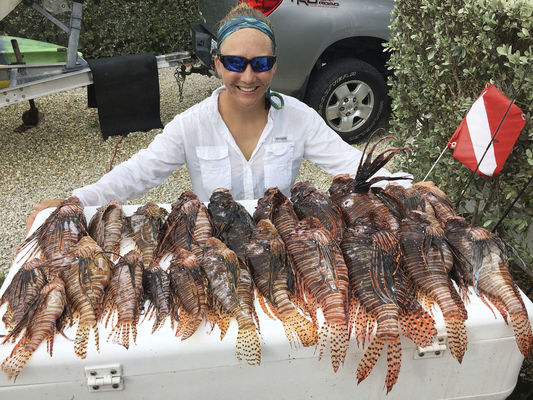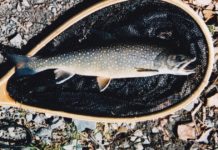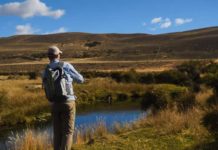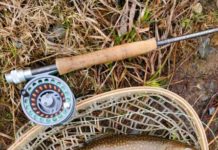Contributed
Kelly Cox and partner Daniel Parobok recently removed three dozen invasive lionfish from waters off Layton.
PLANTATION KEY — Armed with a strong conviction and wielding environmental law to protect the region’s fragile ecosystem, local attorney and activist Kelly Cox is always busy.
“It seems like I’m always working,” she said. “I stay busy. The environment matters to me personally and professionally. It’s why I do what I do.”
Cox is the staff attorney for Miami Waterkeeper, a nonprofit organization working to preserve the area’s watershed through scientific research, education and advocacy.
Cox joined the group in 2016 after graduating University of Miami School of Law and has steadily combined advocacy and the law to ensure the area is replete with swimmable, drinkable and fishable water.
“I went to law school knowing I wanted to practice environmental law and on behalf of public interest,” Cox said.
She joined Miami Waterkeeper as its second full-time employee. She’s now one of seven full-time staff members.
Cox has been involved in challenging the U.S. Nuclear Regulatory Commission’s decision to grant Florida Power & Light’s Turkey Point Units 3 and 4 subsequent license renewal permits to operate to 2052 and 2053, respectively, well beyond the lifespan of other nuclear reactors.
Miami Waterkeeper has initiated a legal challenge along with two co-plaintiffs, Friends of the Earth and the Natural Resources Defense Council.
According to Cox, it’s a complex issue in which she’ll perform more “behind the scenes” legal work as the case proceeds.
Cox grew up in Palm Beach County before wending her way to the upper Keys, where she’s been steadily building up her career and her community alongside partner Daniel Parobok.
“We moved here three years ago and we love it,” she said. In equal parts avid angler and environmentalist, Cox recently caught her first tarpon while fly fishing.
“It was a small one. It was under 20 pounds,” Cox said. “We do all kinds of fishing — spear fishing, fishing on kayaks in remote areas for catch-and-release. A few weeks ago, we scuba dove the deep reefs off of Layton and speared about three dozen lionfish and turned them into ceviche.”
The fish is not native to the area and is considered a threat to local fish populations.
Cox remains at University of Miami as an adjunct professor teaching environmental law and policy to graduate students and stays active in the advocacy realm.
She was appointed to the village of Islamorada Water Quality and Improvement Committee in 2019. The group is looking to modify its water quality monitoring program to better identify nearshore water pollutants.
She also worked with the village in passing the first fertilizer ordinance, which bans the use during the rainy season.
“It’s been really gratifying to be on the committee and to have worked on the fertilizer ordinance, which I am hoping that it sets the stage for the rest of the county,” Cox said. “I love this community and we are happy to be here and to be able to start giving back.”
Cox spends most of her free time on the water, but while on land, she provides a home for two rescue cats, Hobie and Rue.
For more information on Miami Waterkeeper, visit miamiwaterkeeper.org.
tjava@keysnews.com
Credit: Source link































